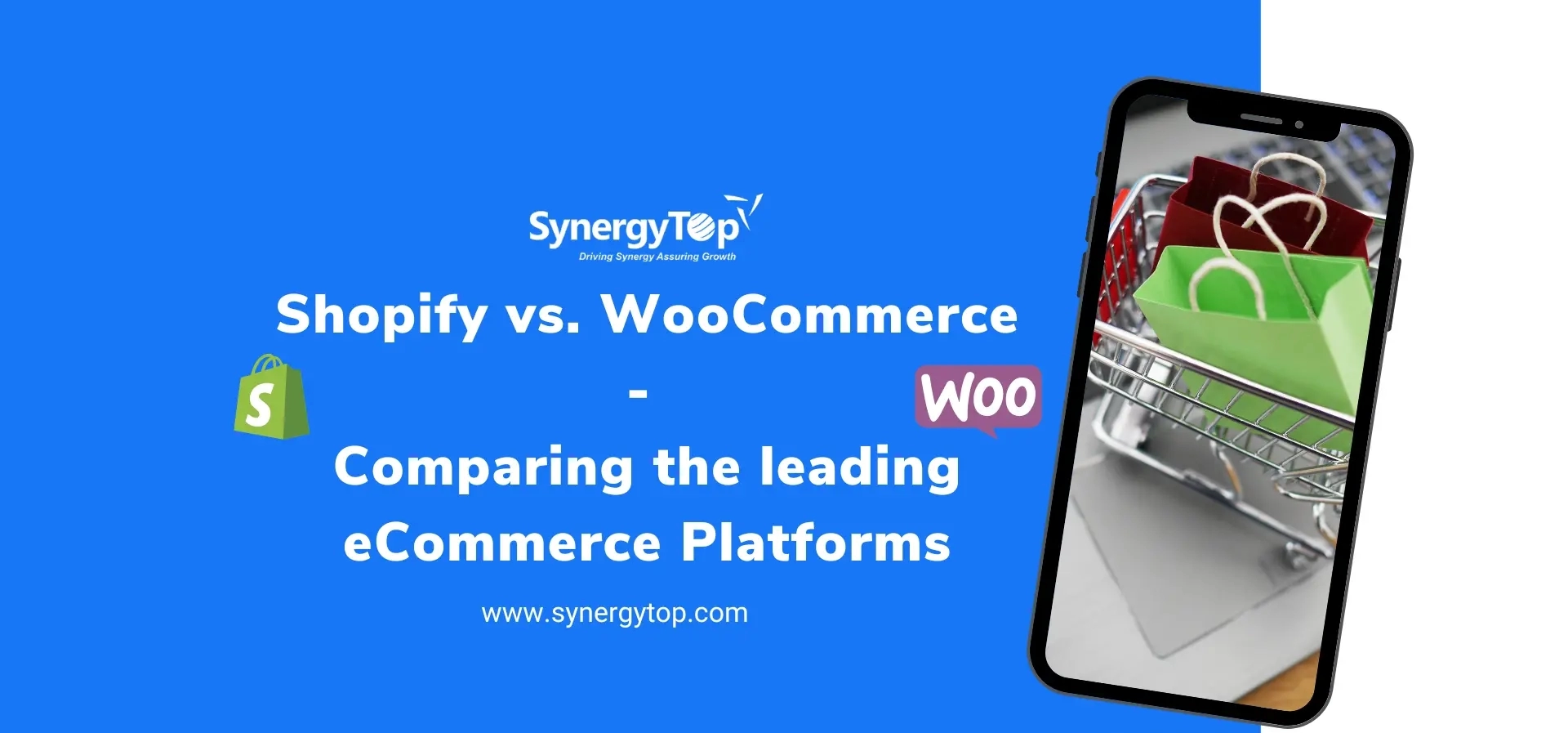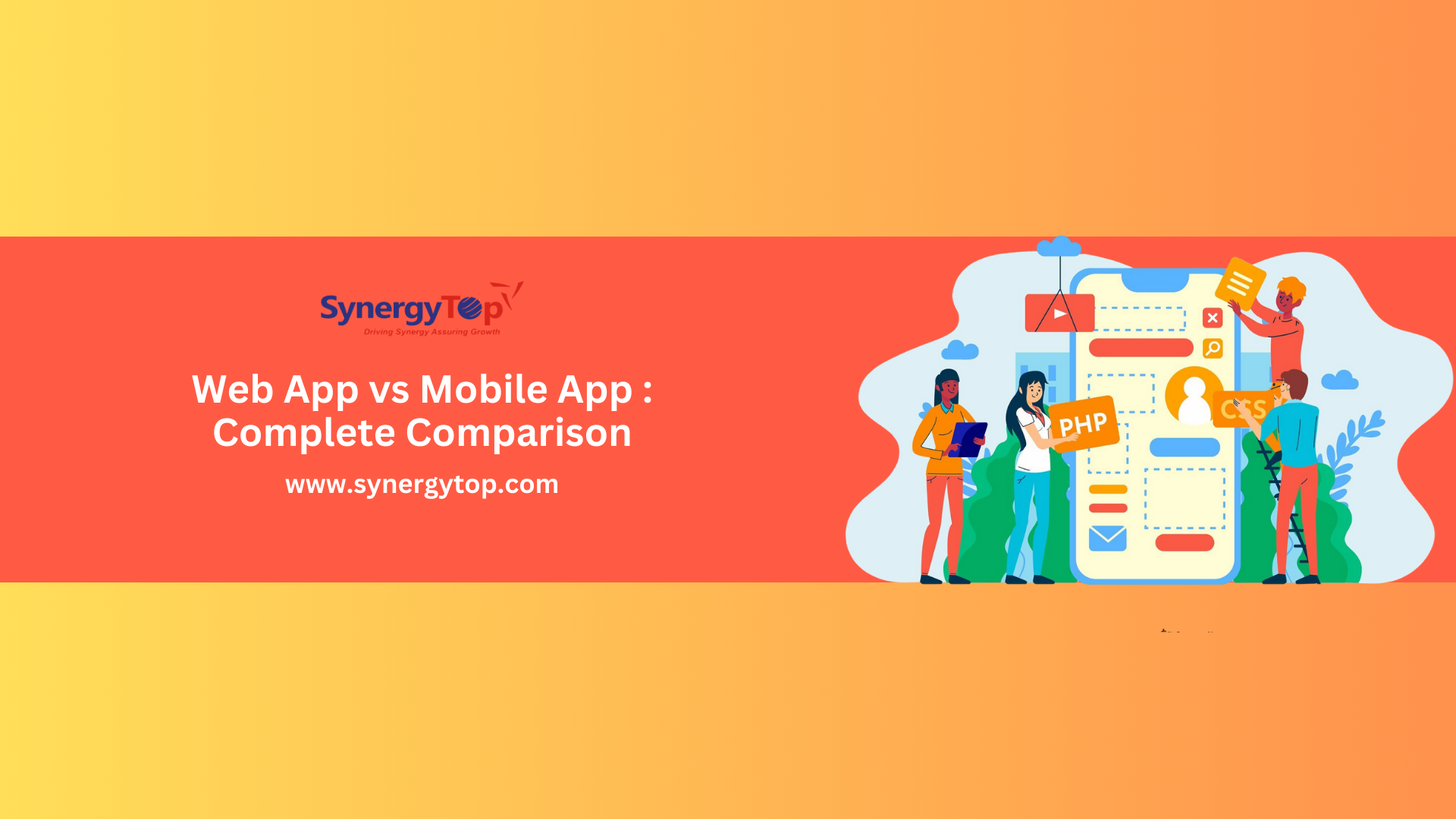Shopify vs. WooCommerce: Two eCommerce giants with an army of loyal fans and experts who swear by the platforms’ abilities. But which one actually comes out on top? Which one should you use? Find out in this guide right here as our eCommerce specialists compare and contrast the two platforms.
In 2021, e-retail sales crossed the USD 5.2 trillion mark. And the number is expected to increase in the upcoming years.
And if you are among those who wish to set up a shop on the Internet, now is the best time to do that.
- As the access to the Internet and Smartphone devices increases, the number of people you can reach online is increasing.
- The supply chain and logistics channels are also increasingly becoming digitized and more sophisticated.
But here’s the problem: Which eCommerce platform should you choose to set up a shopfront on the world wide web?
Well, there are hundreds of options to choose from. And each of these eCommerce platforms promises to offer unmatched services. Two names that stand out, however, are Shopify and WooCommerce.
While Shopify is a well-known eCommerce-focused website builder platform, WooCommerce is a trusted aide that makes WordPress – the most popular CMS – eCommerce-ready.
Also, both these platforms have a wide user base, proving their prowess.
- There are over 4 million Shopify stores across the web today.
- According to estimates, there are 6,322,323 websites built using WooCommerce.
In this guide, our eCommerce experts will compare Shopify and WooCommerce based on the key eCommerce requirements and help you decide which one is the best for you.
Shopify vs. WooCommerce – A Detailed Analysis
1. Ease of use

Shopify is a hosted solution that comes with all the background work done for you. All you have to do to set up your shop on Shopify is to add your products, post some content, and hit Launch.
WooCommerce on the other hand needs hosting, SSL, and all the fringe services before you can even get started.
There is no doubt in the fact that WooCommerce has a steeper learning curve as compared to Shopify.
2. Time to market

If you want to build a store that can quickly help you make sales, Shopify is the way to go. Building a WooCommerce eStore would definitely take longer.
But that is because WooCommerce gives you more customization control. With Shopify, there is only a limited amount of customization that you can do and that’s why it is faster to finish building a store with it.
If you are ready to trade customization control for a faster time to market, go ahead with Shopify. For making a store that you can call truly your own, even if it takes longer to go live, WooCommerce should be your pick.
3. Design and Themes

Shopify offers 70+ free and paid themes. The paid themes start at $140. WooCommerce on the other hand has infinitely more themes that you can choose from. For example, on ThemeForest alone, you can find 1000+ eCommerce-specific themes.
Though Shopify has a better selection of themes, WooCommerce has a wider breadth of choices available.
No matter what design or theme you choose, it all boils down to how relevant they are to your business and how much you can customize them, so WooCommerce does have an upper hand here.
4. Sales features

Shopify and WooCommerce are both dedicated eCommerce builders. So it is obvious that both platforms offer great sales features.
But they aren’t alike in all ways. Here are the differences between the sales features of Shopify and WooCommerce:

Some other Shopify sales features include
- Discount codes
- Ability to add unlimited products
You’ll need to pay for these features if you get them via WooCommerce app integrations.
Worthwhile WooCommerce sales functionality includes
- Built-in blogging
- One-click refund processing.
While both Shopify and WooCommerce offer at-par sales features, the choice ultimately comes down to what features you actually need for your eStore.
5. Plugins and Integrations

Shopify has over 1200 free and paid plugins that let you add additional strings to your online store. WooCommerce on the other hand has 50,000+ options. This is primarily due to the fact that WooCommerce is open-source and relies on plugins for most of its functionality. Shopify has more in-built features.
If you need a lot of bells and whistles on your eStore, you may be inclined to go with WooCommerce which offers wider options.
6. Payment options and Transaction fees

Both Shopify and WooCommerce offer 100+ payment options to choose from. However, Shopify charges a 2% transaction fee on all transactions done using third-party payment apps. If you use Shopify Payments – Shopify’s in-house payment platform, you won’t have to pay that fee.
WooCommerce has no such limitation.
If you have low-margin products and still want to use third-party payment platforms, WooCommerce is an obvious pick. If you don’t mind using Shopify Payments, then Shopify is great too.
7. Search engine optimization

WooCommerce works with WordPress which is one of the most SEO-friendly CMS platforms today. That means WooCommerce too has the SEO benefits that come from a wide range of SEO plugins available for free and marginal payments.
Plus, there are thousands of guides and tutorials that can help you optimize your WooCommerce store for search engines.
Shopify too has some SEO apps in the app store – free and paid. But the SEO functionality is limited and guides are not as easily available.
WooCommerce clearly has better scope for SEO as compared to Shopify. However, the actual results depend on how you optimize your site.
8. Security

Security needs to be a priority for any website. But especially when you have an eCommerce store, you have to be even more cautious as it involves money and the personal information of your customers. WooCommerce is a self-hosted platform, so you have to look after the security yourself – from SSL to site safety, and more. Shopify, which is a hosted platform takes care of everything for you.
Both Shopify and WooCommerce offer stunning security features. The difference is just that Shopify takes care of everything for you and WooCommerce lets you take charge.
9. Customer support

Shopify offers 24/7 customer support via phone, live chat, and email. Plus, there are several guides and resources that you can check out.
WooCommerce, being open-source has no in-house support. Your hosting service provider is your only go-to for any help and aid.
Shopify offers great customer support in-house but for WooCommerce support, you need to depend on your hosting provider.
10. Pricing

Shopify offers various monthly plans for its SaaS-based eCommerce platforms. These plans range from $29 to $299 per month.
WooCommerce is free. But you still have to pay for hosting, integrations, SSL, etc. which come included in the Shopify plans.
The only way you can draw a price-based comparison between Shopify and WooCommerce is by summing all your frill expenses for WooCommerce against comparable Shopify plans.
Summing Up
Based on our detailed analysis and understanding of the pros and cons of both the platforms, Shopify and WooCommerce, we can conclude that:
- If you need a no-fuss solution that can be created using the available apps and plugins, Shopify is the way to go.
- For more hands-on projects where you need more customizations, you should consider getting using WooCommerce.
Get Reliable eCommerce Development Services That Meet All Your Needs
No matter whether you choose Shopify or WordPress, you still need experts to design and develop a revenue-generating eCommerce store.
SynergyTop can be your ideal eCommerce development partner as we have
- 8+ years of experience
- Hands-on experience with various eCommerce technologies and platforms like Shopify, Shopify Plus, WooCommerce, Magento, commercetools, Oracle Commerce, Endeca, Netsuite, and more.
- A team of 50+ experts
- Delivered 200+ custom eCommerce solutions so far
- 100% customer satisfaction guarantee
Get started with your online sales soon by contacting SynergyTop’s eCommerce experts today.
















